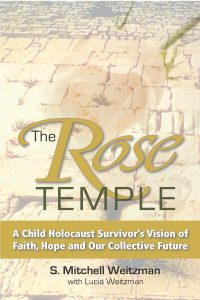On Sunday night, “Son of Saul,” a work of fiction set in 1944 at the very real Auschwitz-Birkenau concentration camp, won the Academy Award for Best Foreign Language Film. A unique aspect of this Holocaust film is its focus (literally its camera lens) on a single man, Saul Auslander, a Jewish prisoner forced to help the Nazis exterminate fellow Jews. Through one man’s eyes, an unimaginable world comes into view.
“The continual close-ups of Saul serve a solemn purpose,” writes Anthony Lane, film critic forTheNew Yorker. “They reinforce the sense that one man’s testimony is enough.”
If “Son of Saul” succeeds in personalizingthe enormous scale and complexity of the Holocaust,both the film and the filmmaker also speak to the power of an individual to exercise personal choice, even under the most trying circumstances.
The fictional Saul makes a choice, at great personal risk, to try to arrange a proper burial for a boy he “claims” as his son. Meanwhile, the film’s real life, first-time director, LászlóNemes, also demonstrated the power of one.
Nemesfaced significant resistance when he tried to get the film funded. Many detractors also cited lack of interest in another Holocaust film. Yet Nemes prevailed, garnering a Golden Globe and Oscar for Best Foreign Language Film and, and more importantly, instigating conversation about the need for religious tolerance and kindness that is still, unfortunately, all too relevant today.
Numbers can be overwhelming and desensitizing. That is why we can connect to one life more than we can grasp the fate of six million. To its credit, though, “Son of Saul” speaks not only to individual fate but also to personal choice.
The Holocaust may now be a historical event, but the matter of how we choose to conduct ourselves inour lifetimes long preceded the Holocaust, and will live on long after the last survivor has passed. Any one person can and does have an impact on our collective future. The power of one is exponentially more than just a number.
Mitchell Weitzman is the co-author of the forthcoming The Rose Temple: A Child Holocaust Survivor’s Vision of Faith, Hope, and Our Collective Future. https://therosetemple.com



